There are few things I want to do less than give this tribute to my father. The unflinching approach to reality he imparted had left me noticing his aging, and I was preparing to adapt, over time…. But my father never gave someone a challenge he thought them incapable of meeting.
All the wonderful things being shared about my father obviously come as no surprise to me, and I had so hoped to spend the next few years, hearing those things with him, but knowing how uncomfortable it would have made him to hear so much praise, as his own ability to act diminished, I have to appreciate that, as hard as this is on the rest of us, it was an ending with which he would have been satisfied.
I had hoped to spend the next years supporting him, as he always has supported me- my father has been at anything I asked him to be at, and volunteered for things I didn’t intend to subject him to… And The outpouring of remembrances from my friends, has reminded me, of how important it was to him, to know the people important to me. I was touched by the photos my parents saved, not only of me, but of Niki, Jeremy, Erica, Jason, Abe, and so many others. Many of my students and colleagues had stories, as they’ve driven out to Cal Poly Pomona for multiple events, marched with my students for a sustainable future, and for the rights of immigrants, and were happy to attend CPP sponsored Dodger games. Despite his years of public speaking at high-stakes events, family members have reminded me of how the event for which he showed some concern for his performance, was when called upon to officiate my wedding. He saw that a high stakes event. I think Navid would have stayed even with a minor error…. And the depth of his loss, is a testament to my father’s ability to welcome people into his family- completely. When you’re in, you’re in… That’s the for better or worse. And with my father, it was almost all better.
My father didn’t know how to be unproductive, and he will have posthumous work published (not a hint to his co-authors, or a comment on the reviewers- #2 I’m looking at you…), but the idea of slowing down, of doing less, of relaxing, was not at all appealing to him. Nor had it ever been.
Even now as he prepared to “retire” for the fourth time(?), he was finally finding the time to research our family history, finding a master’s thesis on one relative, connecting with ethnomusicologists while researching a family melody… he was organizing photos and records, and of course, gardening.
I’m not sure I ever remember my father reading a novel, though the books he gave me to read, were always meaningful. A Tree Grows in Brooklyn, The Yearling, Black Boy…. Ya know light childhood reading. He never binged anything on Netflix. But he wasn’t quite as out of touch with popular culture as we used to joke. I remember him telling me these films will change how movies are made, when he took me to 2001, and Star Wars.
To vacation with my father was not per se relaxing, but it was always educational. Weren’t there museums to see, history to be learned, culture to be appreciated? I can’t imagine a trip to a beach resort without a sustainability tour. And I have been to an embarrassing number of train museums. From the family albums, apparently my mother married him despite the train museums.
My father had a quintessentially east coast Jewish sense of humor. Political, ironic, dark, but never mean. He had a good chuckle when he learned the Jewish space laser conspiracy centered on high-speed rail, and we certainly have exchanged our share of dark political humor over the years. But he also would go long game on humor, in a way I don’t think most knew…. When my brother was roughly 8- around 1982 (fine I checked the year online), he saw the old chalice comedy skit redone by HBO as a short, and thought it was hysterical, so in typical 8-year-old fashion (and I have an eight-year-old with my brother’s smile), he made a few too many jokes about the chalice, begging my father to re-enact the skit for him. My father, good-naturedly threatened to do that as the toast at my brother’s wedding, if he didn’t stop…. Over the years, once in a while he would bring that up… Fast forward to 2004- Steve and Shirley’s wedding. My father gets up to give a toast, and he opens with the exact same, largely innocuous lines of the skit…. The look on my brother’s face was priceless. Of course, my father proceeded with a lovely toast, And I know only four people there got the joke… but it was epic.
My father did love baseball. Growing up in New York in the 40s and 50s, he and his Uncle Harold’s favorite escape was in the rooting for the underdog Brooklyn Dodgers. And many of you who may have attended games could have mistaken him for teetotal, as he almost never enjoyed a beer at a game. Why? Because once, during a restroom break- he missed a triple play. Fortunately, he stayed in his seat in 1988 for Gibson’s home run, and As a Brooklyn Dodger fan, he saw most of the greats play live, including Jackie Robinson. He also took me to some pretty amazing baseball games, and thanks to his busy travel schedule, I was frequently the lucky recipient of tickets, even when he couldn’t attend. My first Dodger Game went into extra innings, and the Dodgers won on a hit by Steve Garvey. Since we never leave early, we were at the game where the Dodgers hit four home runs in the ninth, though we also suffered through a game where they blew a 13 run lead…. I was at Orel Herscheiser’s first start as a Dodger at Shea with the somewhat traitorous but still beloved Uncle Harold who had defected to Mets fandom…. We’ve seen more than one win by pitchers like Valenzuela, and Kershaw… And I got 18 innings of world series baseball- in one game. No, I did not leave early. And I rode my bike.
Despite his impressive personal achievements, he told me, more than once, that the real influence he had and what he was most proud of, -were the people he had the privilege of working with, educating and developing. He told me, “Not very many people read academic papers, but the influence we have, is in not only the scholars we train, but the many students who don’t become scholars, but go into the world, carrying what we teach them, the messages, values, ideas, and ways of thinking that we impart.” He saw himself fundamentally as an educator, and that approach, allowed him to remain true to himself, his ideals, and his values. Because what he valued most -were people. And being an educator wasn’t a one-way street. He valued what students brought and he integrated it into his thinking and as a result he never stopped growing- challenging his own thinking. That this was the real value of being an educator, the opportunity to expand people’s minds, and in turn, have your own expanded. Recently I had the wonderful privilege of two of my own former students returning to guest lecture for our annual professor for a day campus event. I had them speak about research, about data. And they blew me away. They had this deeply compassionate, humane view of policy, of research, of data. I was shocked at how much of my father’s voice was in their words. When they ended with, and this is what you taught us Dr. Wachs…. It wanted to tell them it wasn’t really me. I was just passing on what I had lived.
One of my friends jokes that when you bring sociology (and my father was undecided between sociology and civil planning) to other disciplines, everyone thinks your brilliant, but one is just asking for people-centered, critically evaluated, long-term planning. And that was effectively the mantra of my life. My father imparted that fundamentally research is about people, and people’s lives. My father lived his life never forgetting that every equation, every budgetary decision, every funding priority, wasn’t a number on the page, it was people’s lives. And those lives were precious, valuable, worthy things. For my father, every person mattered and should be treated with dignity and respect.
And seeing the many wonderful students he taught, and the people they have become, and who my brother is, and who we chose to marry (Shirley and Navid), and who Leia and Ziya are, he will never be gone, and the world is better because he was in it.
I think the many tributes and accolades that continue to pour in would have overwhelmed my father. He was a practical person at his core. But that’s not his legacy. The legacy he leaves is a cadre of people committed to social justice and equity, and human-centered policy. And I am confident that the scholars, practitioners, and activists, he mentored can and will achieve this. And that will be his legacy.
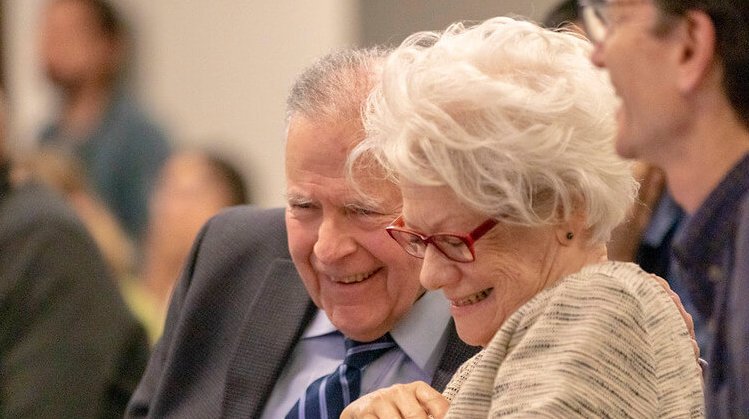
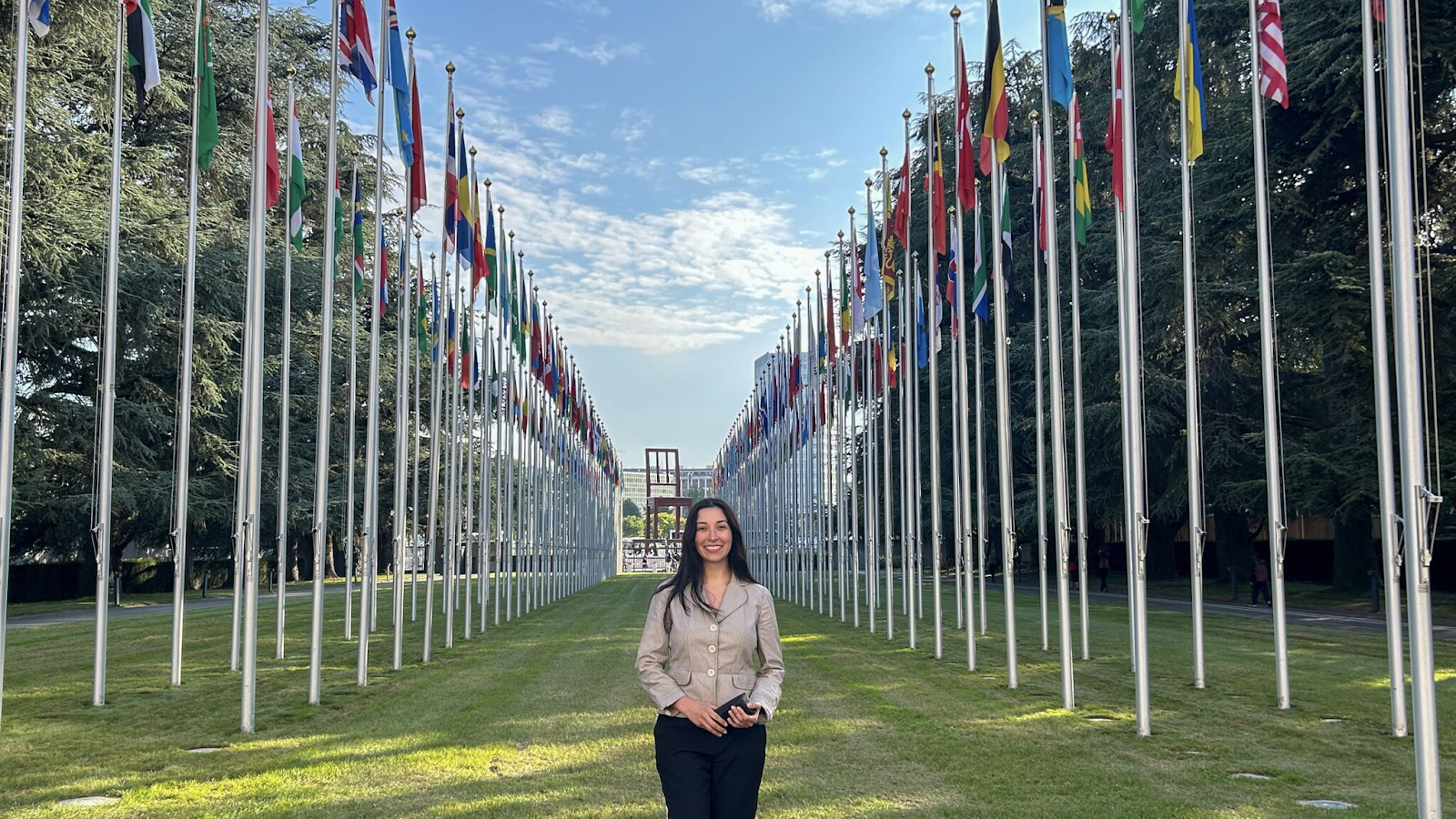
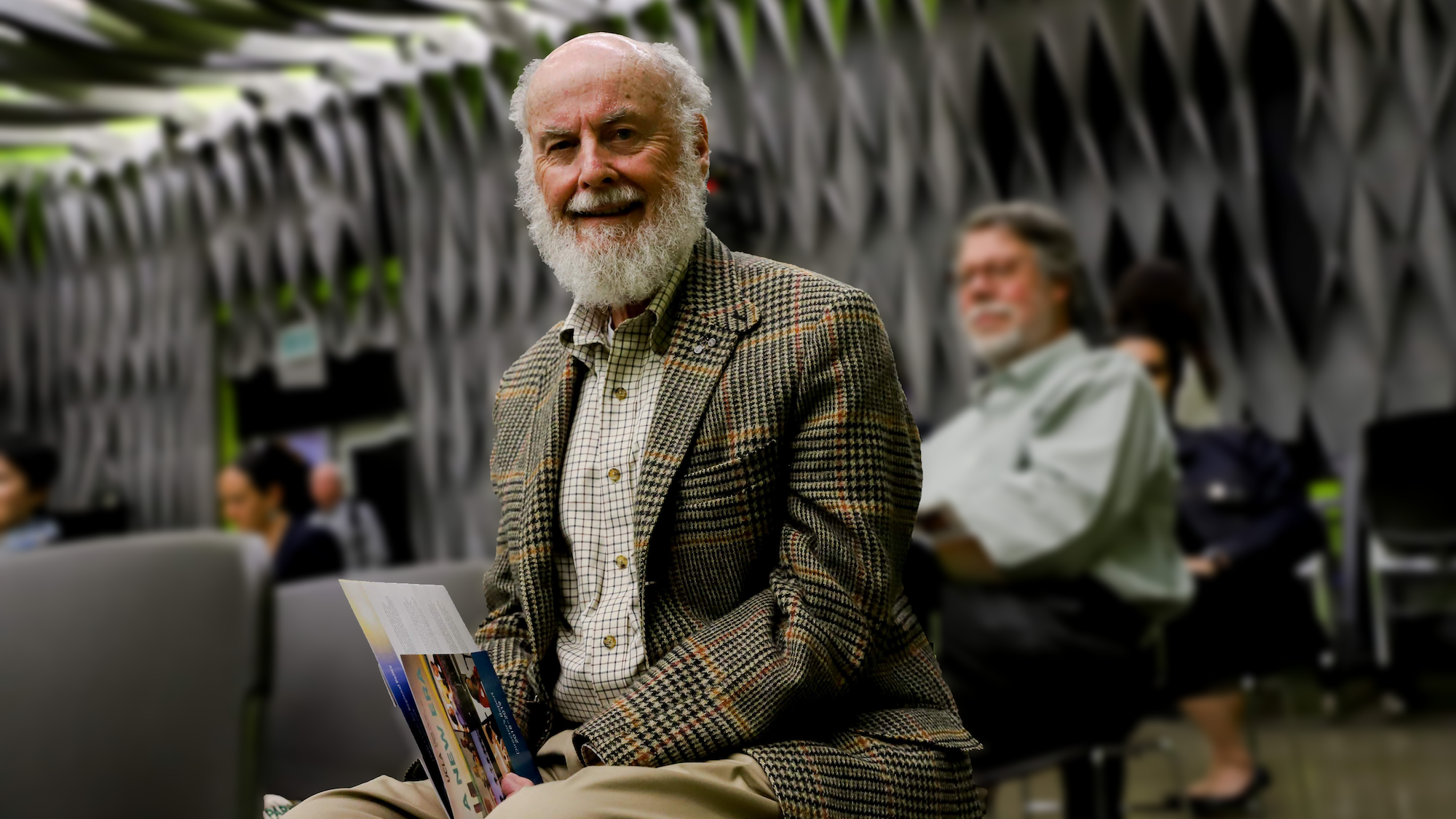



















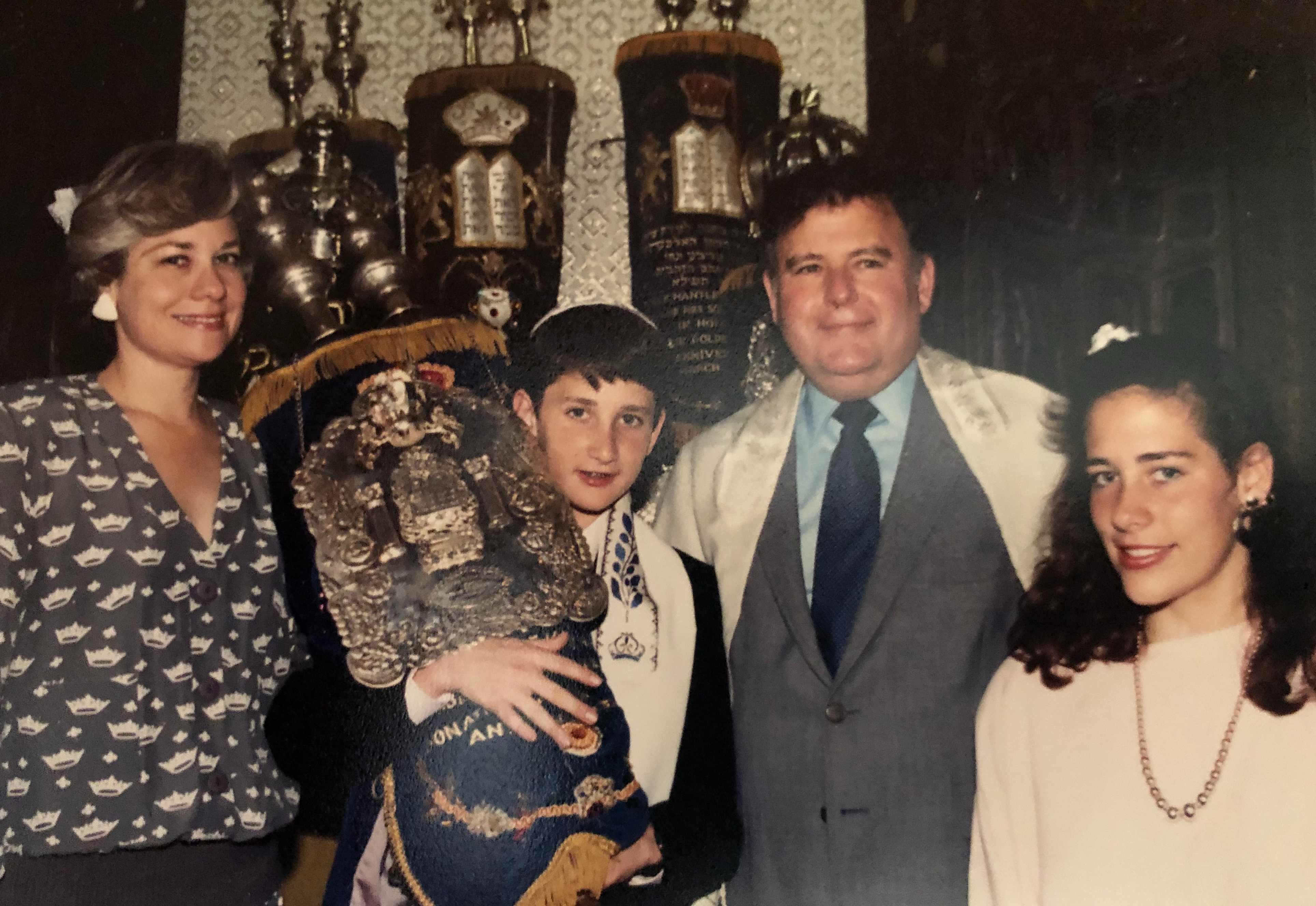





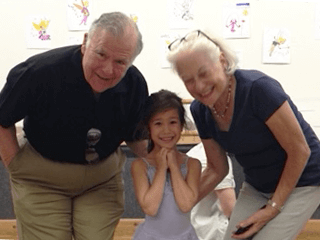
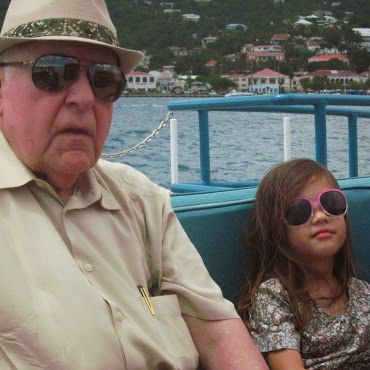
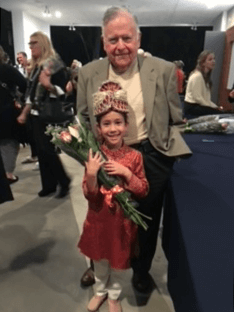
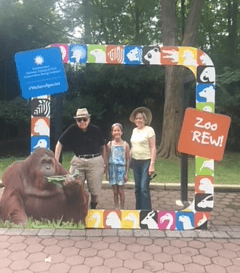

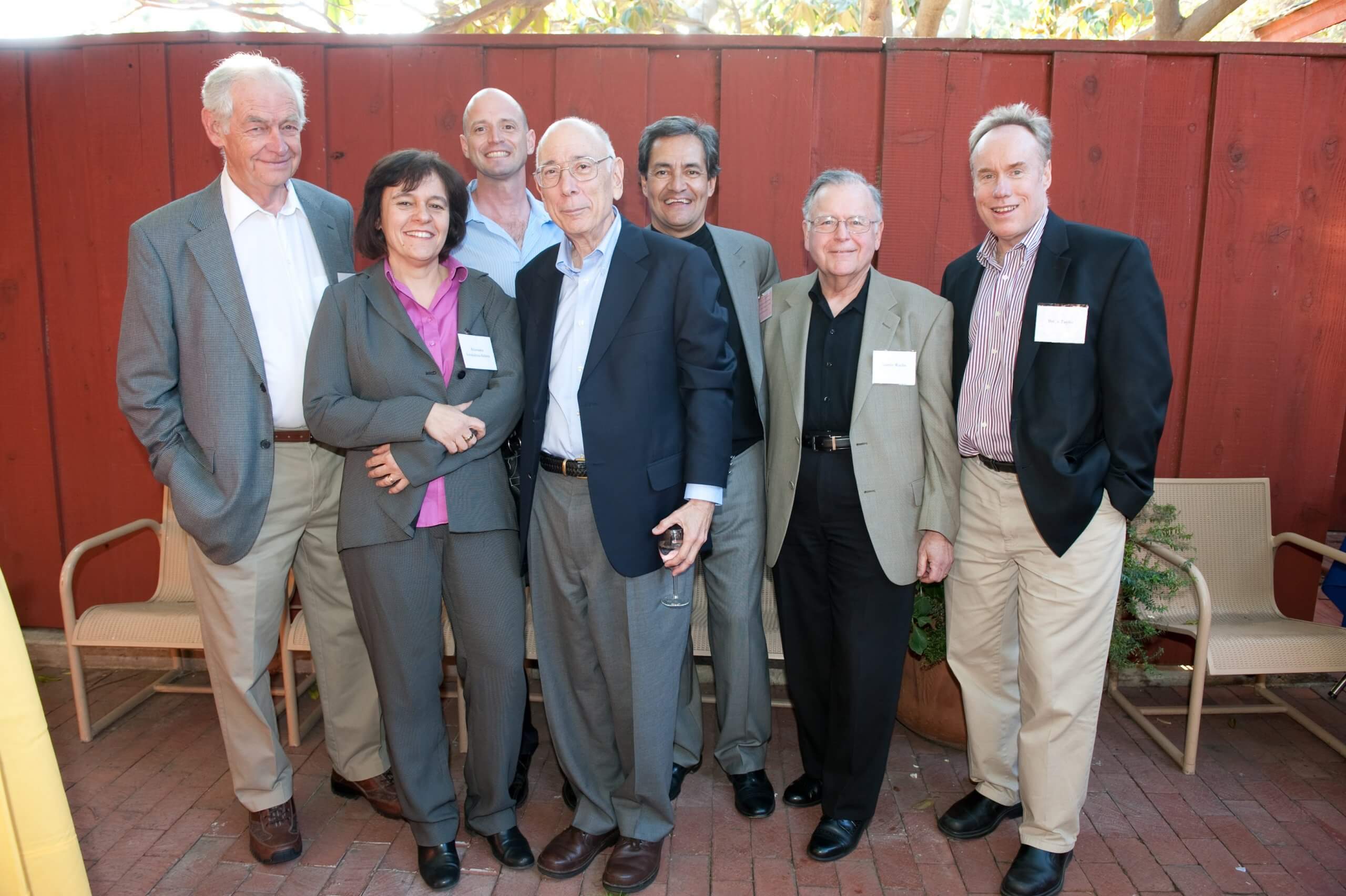
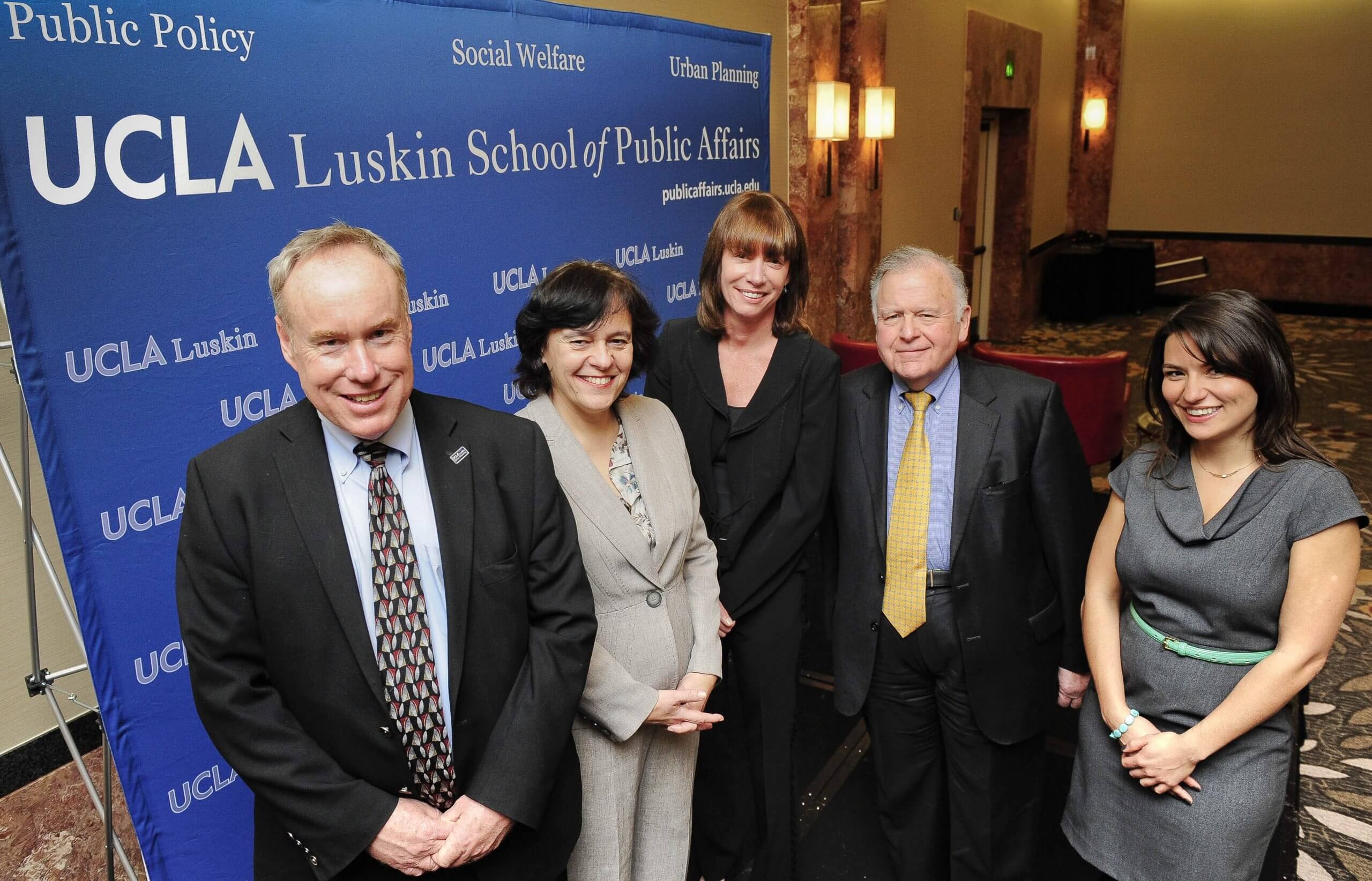

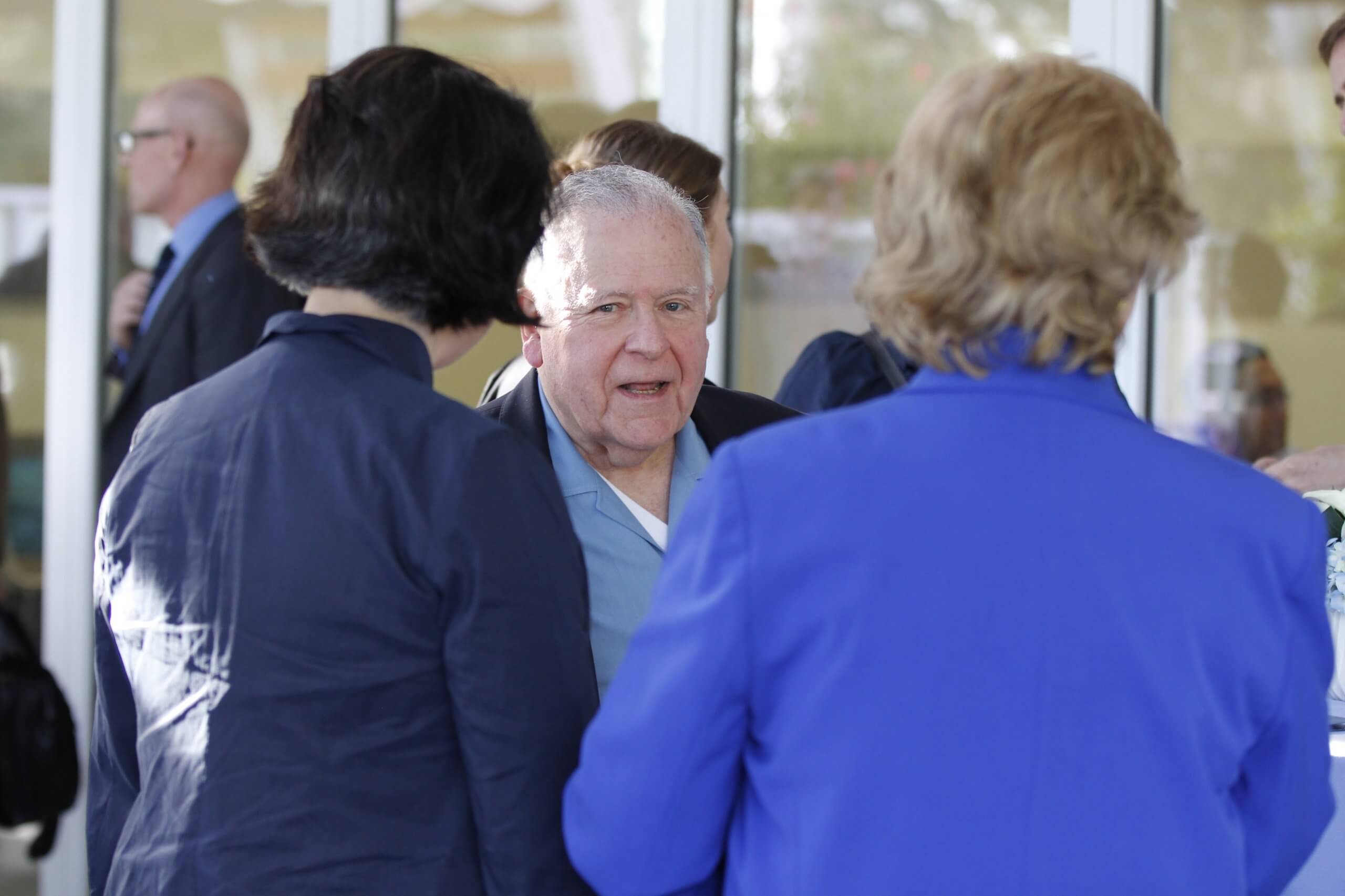
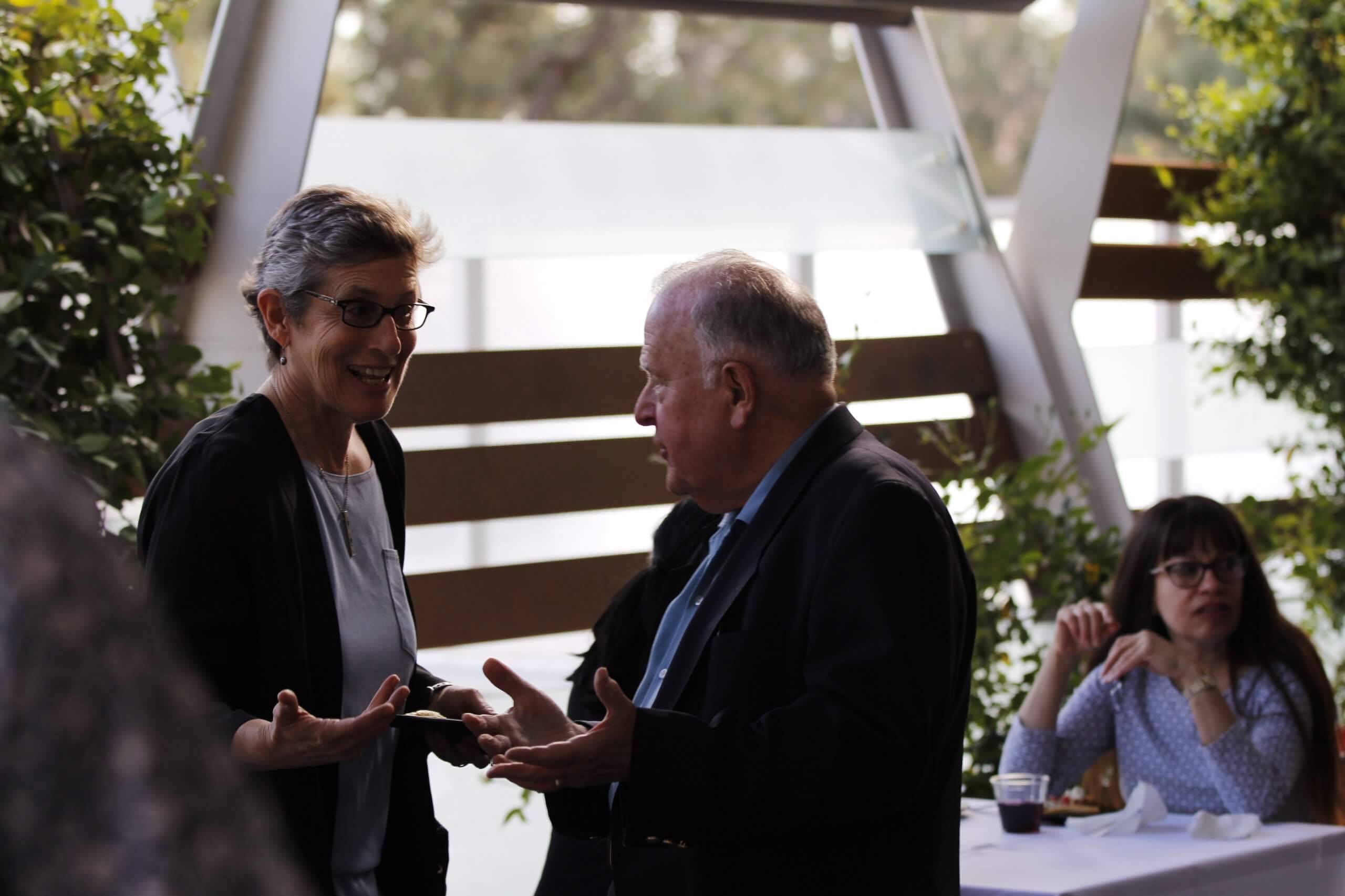
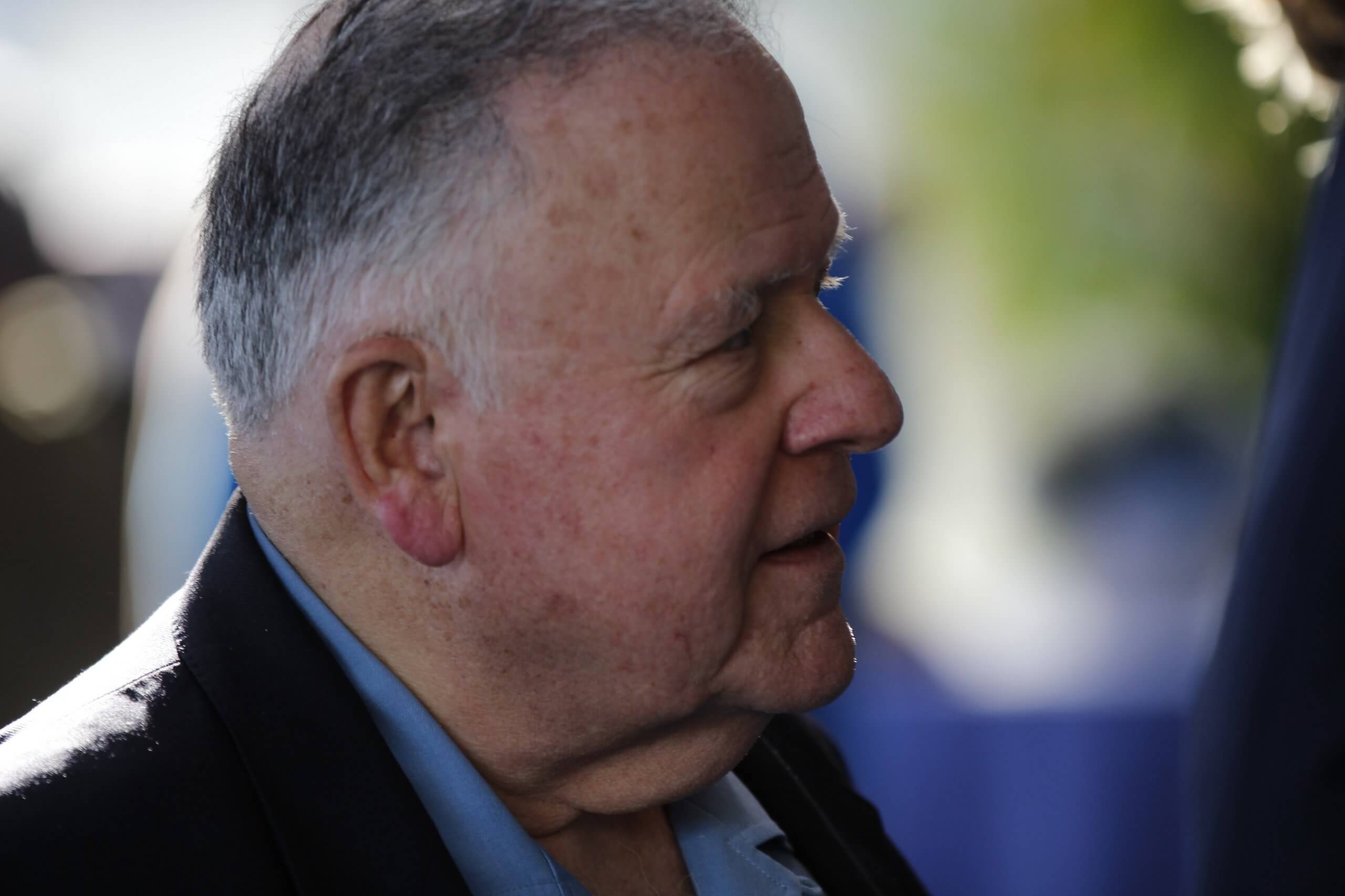
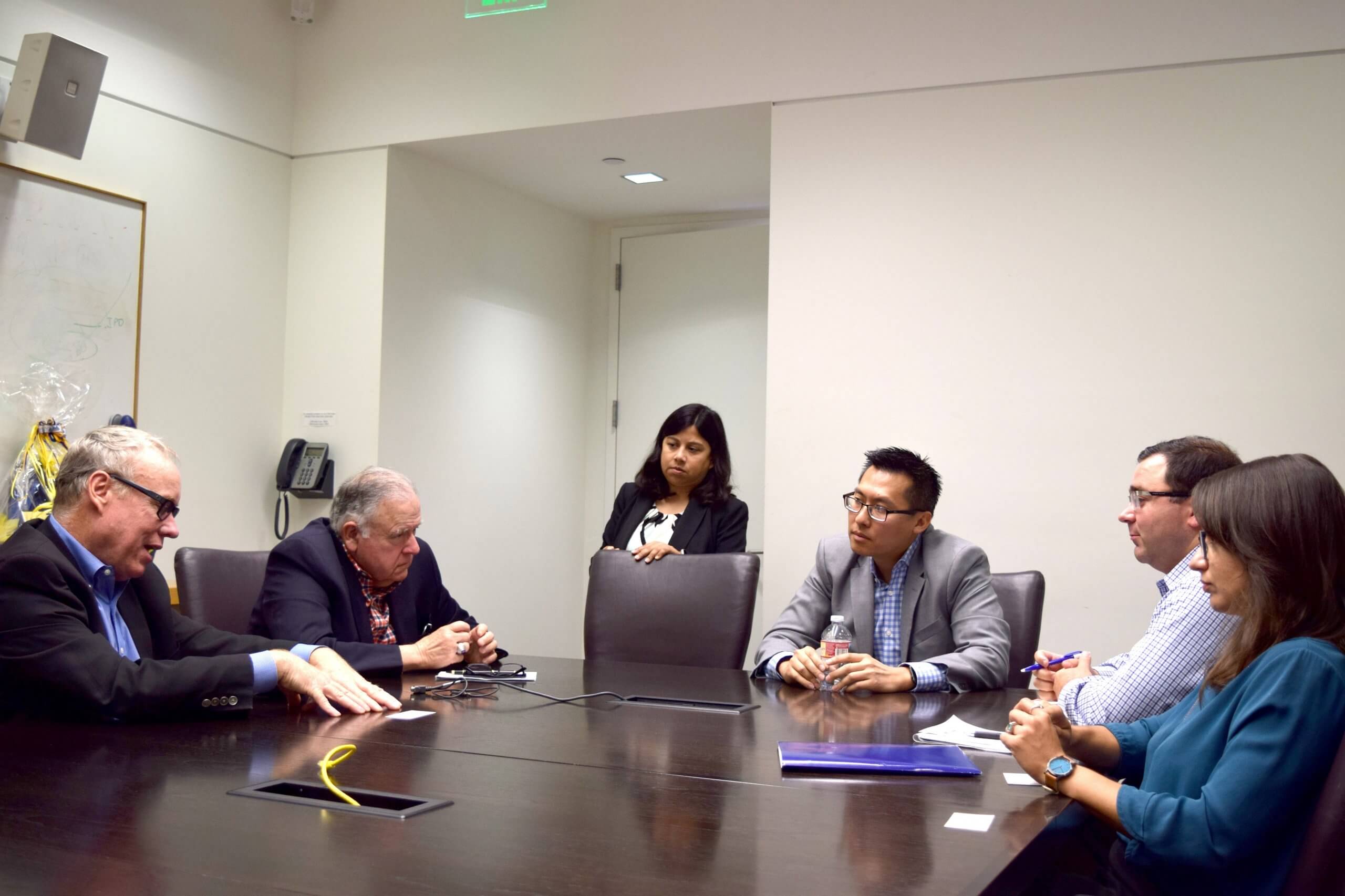
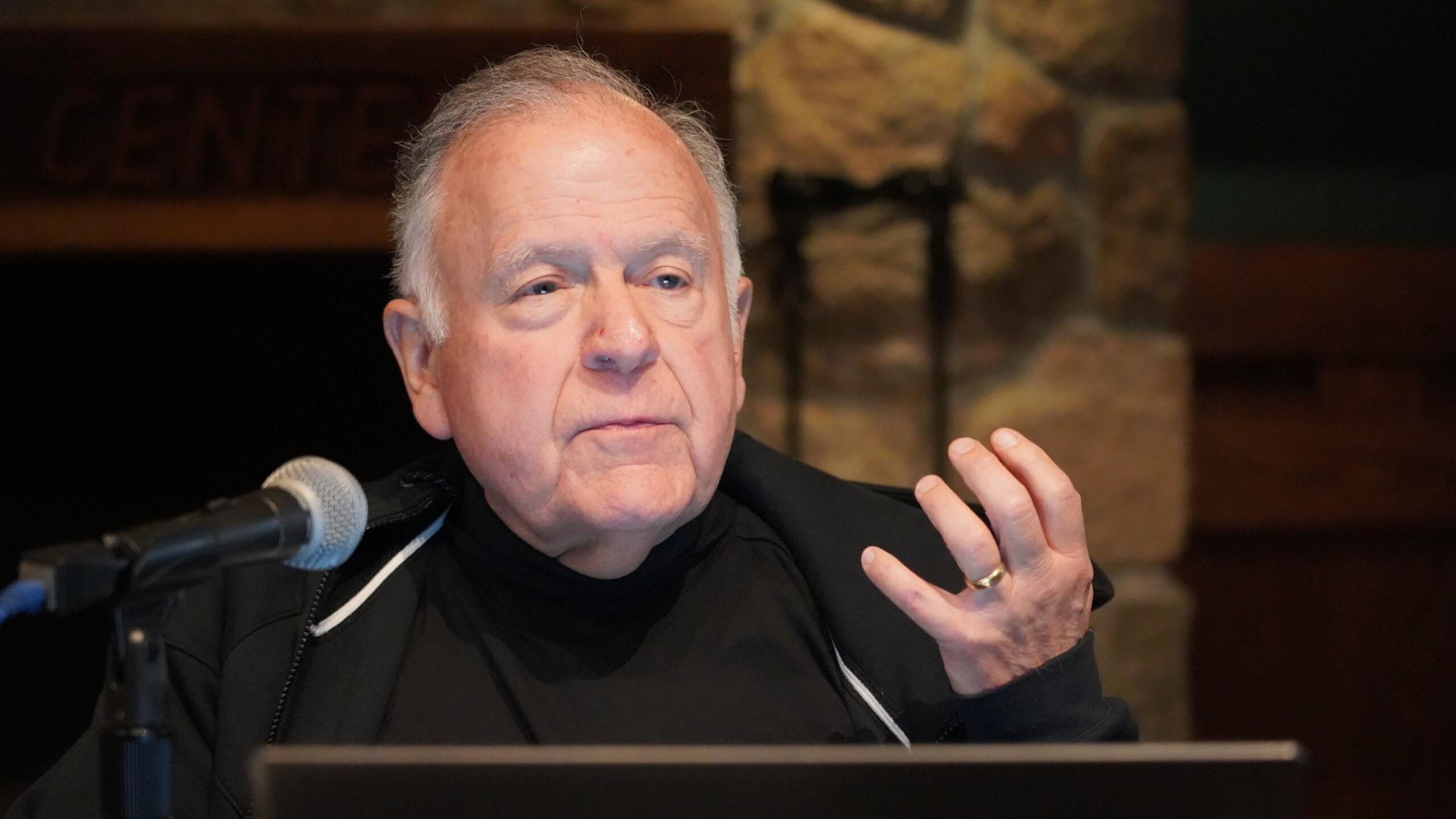
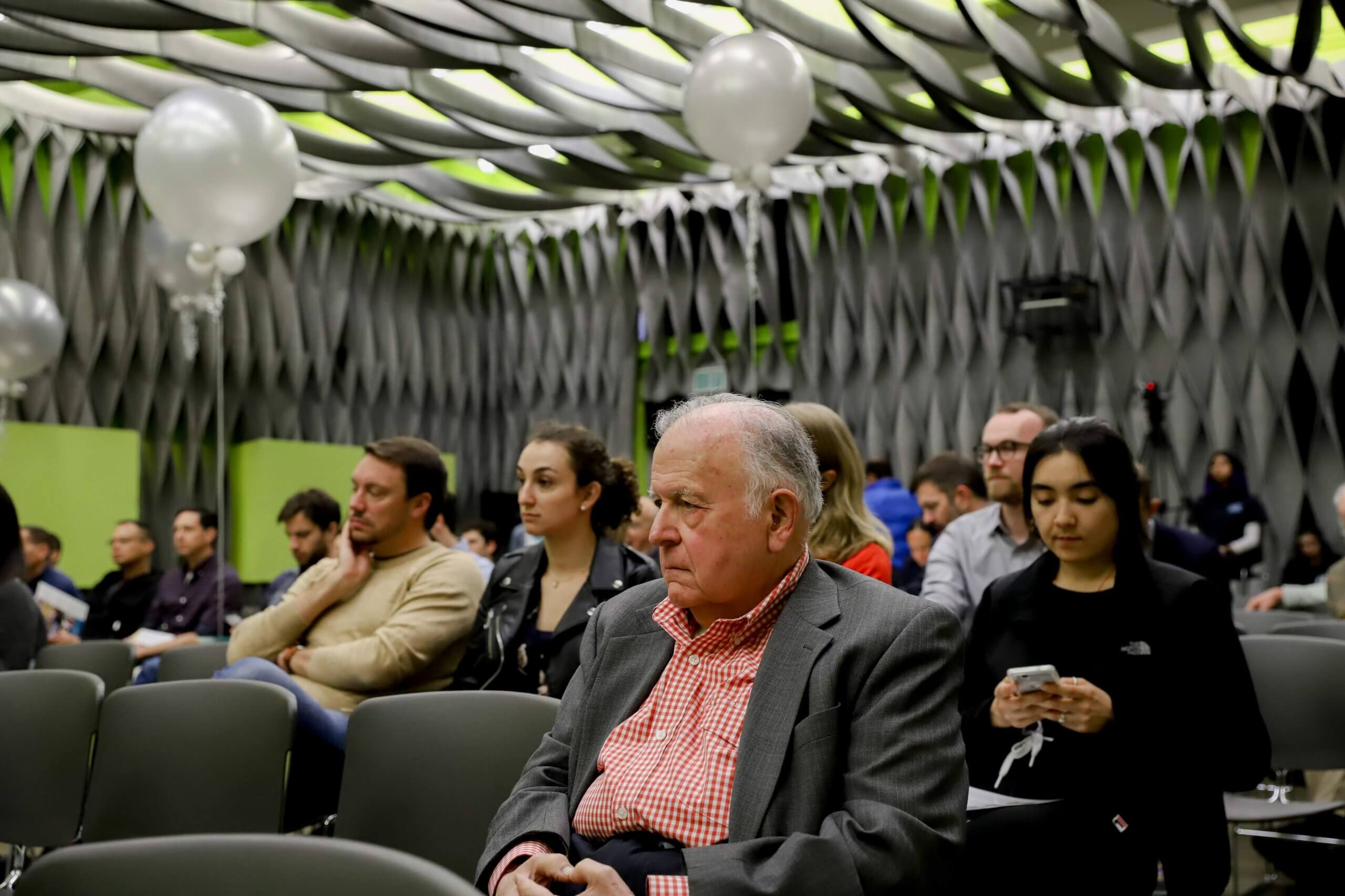
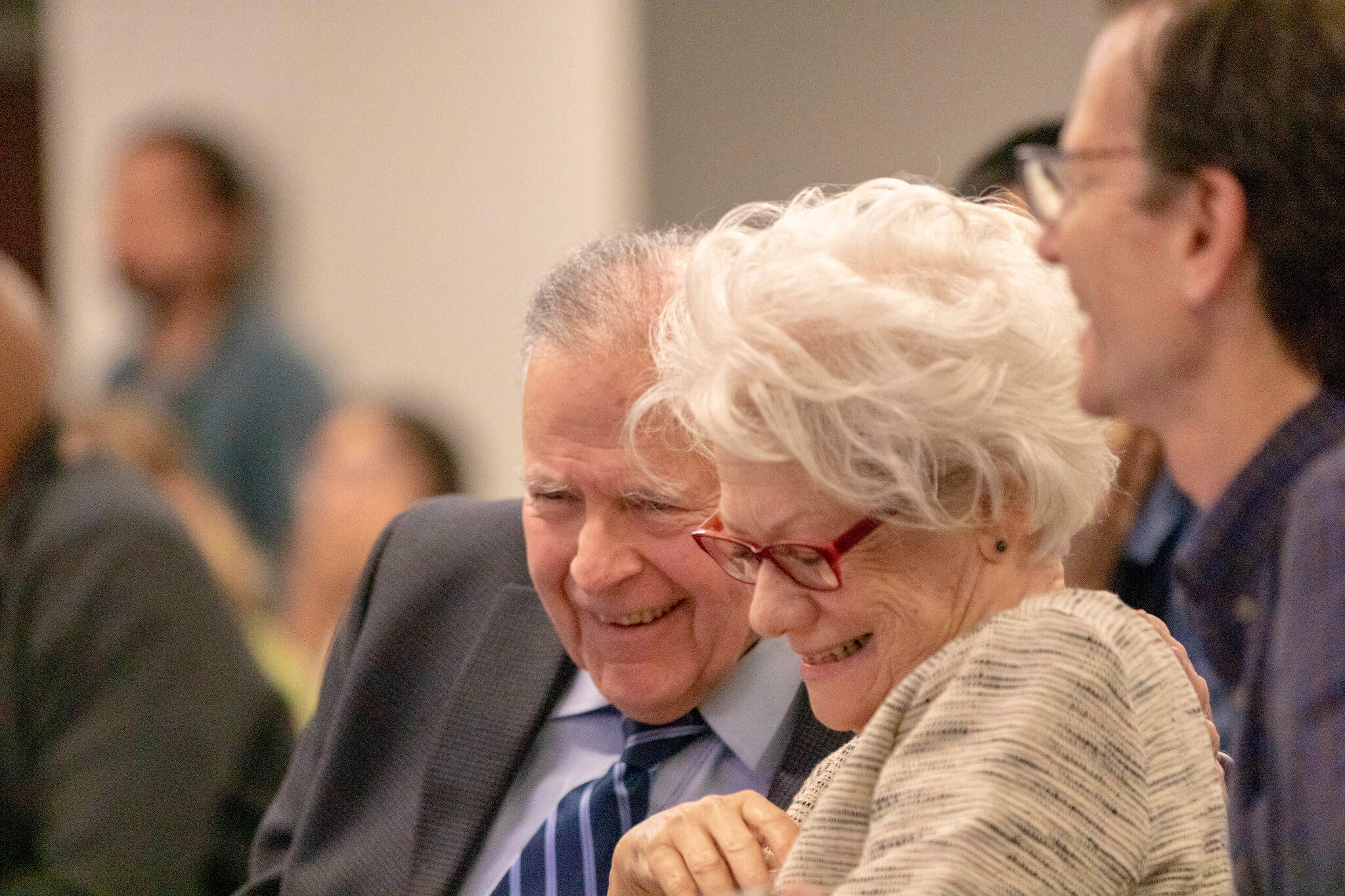
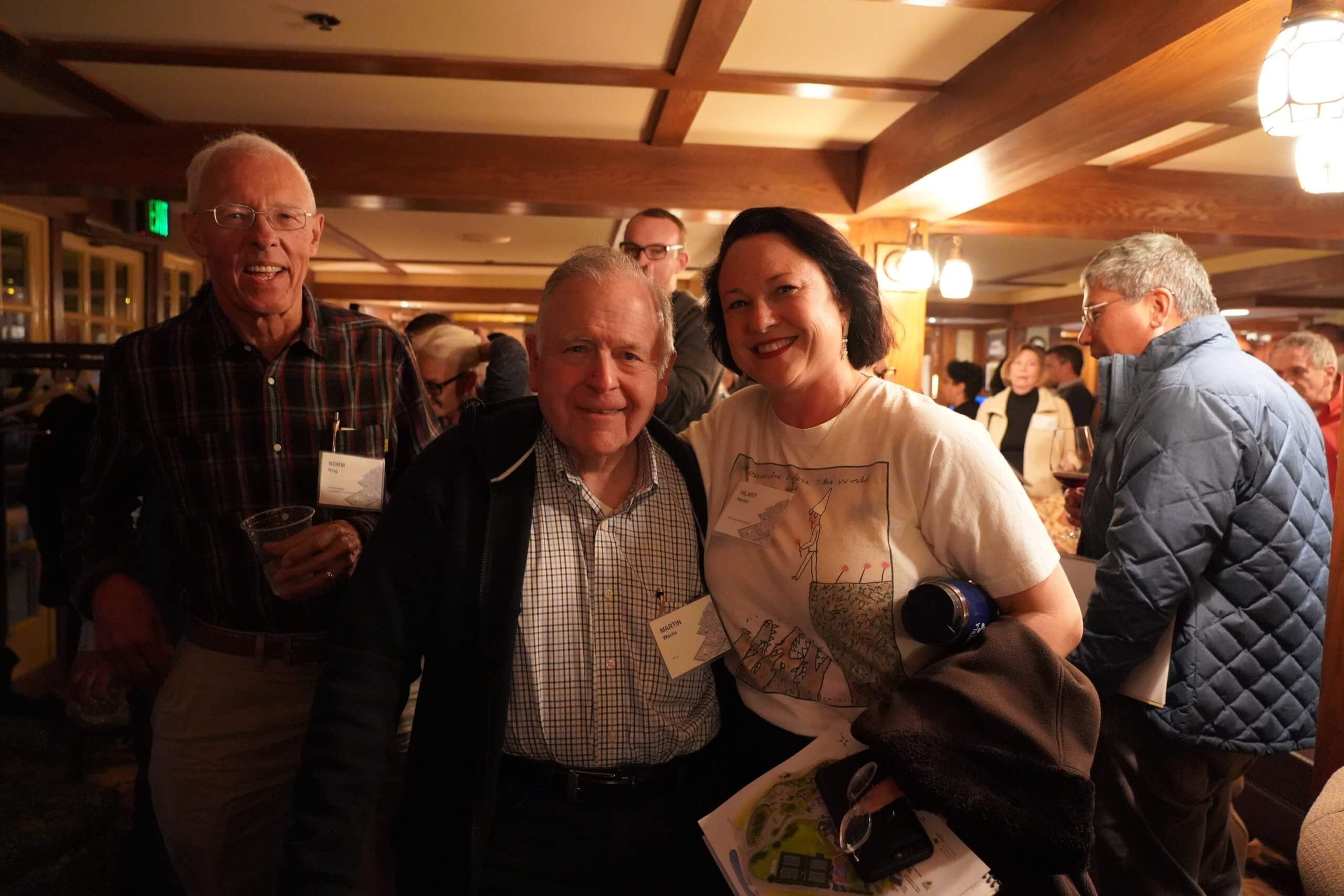
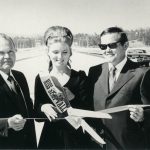



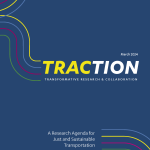
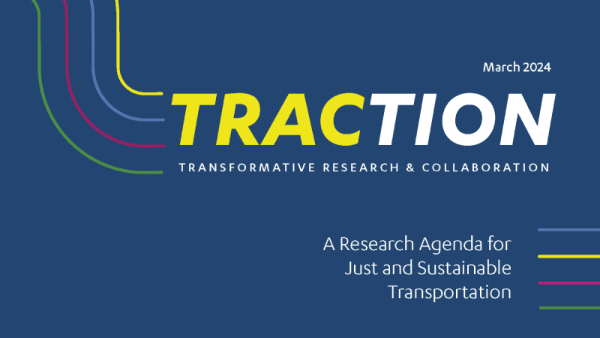
I had the privilege of being a student-mentee of Marty at UCLA, a faculty colleague at Berkeley, and outside academic halls, a long-time friend. Marty had an incredible life, touching and influencing people, most notably his students, unlike anyone I’ve ever known. Marty was highly regarded for his intellect and creative mind, but it was his kind, sweet gentle nature that stood out, traits too rarely found in the academic world. Students, past and present, simply adored Marty. I have lots of fond memories of Marty from four-plus decades ago — allowing me to swing by his home in the canyons behind the UCLA campus on the weekend to drop off something (pre-email, probably research-related stuff), his love for the Dodgers, his open door policy, his caring, captivating smile, his engaging style in the classroom, his beautiful calligraphy, and more. One memory that stands out was a trip Marty and I made to Woods Hole, Massachusetts in 1980, to present the results of our research project on transit fare policy at a TRB-related event (with, among other things, a lobster bake on the open lawn after the event), work that spun off into my dissertation. I was particularly touched that Marty got TRB to invite me, an unknown upcoming PhD grad, to present the work: it meant a lot and was reflective of Marty’s beloved nature of putting the interests of his students above himself and in my case, paving the way for me to network with others in the field. It was a fantastic eye-opening, life-shaping occasion for me. We flew into the airport in nearby Falmouth in bumpy weather, an unnerving experience for me as (at the time) a neophyte flier. I recall a movie was showing as we approached the landing and of all things, the movie showed an airplane out of control about to crash. I sort of lost it. Marty sensed I was rattled and sought to comfort me by citing statistics that our risks of a fatality were far higher in the taxi ride from the airport than the flight into the airport. It was classic Marty: caring and comforting yet sober and scientific.
It is so sad to hear of Marty’s passing. He was a great mentor at TRB and a great teacher of transportation economics, who always had a joke up his sleeve for us students! He will be missed, and it was a privilege to learn from him. Thanks for sharing the news, Robert.
In 2006 Texas was struggling with meeting the need for transportation infrastructure and created a Study Commission on Transportation Finance. Dr. Wachs was invited to bring its members up to speed by providing background, status, and options. His testimony, formalized in his report “A Quiet Crisis in Transportation Finance: Options for Texas ” (published by the RAND Corporation https://senate.texas.gov/cmtes/79/c865/c865.quietcrisis.pdf) is still an excellent study and was very helpful in the Texas Legislature’s deliberations. His delivery was perfect (http://tlcsenate.granicus.com/MediaPlayer.php?clip_id=5667 at the two hour mark) coming across not as ivory tower condescension but as someone with a wide and deep understanding of the issue, strong command of numbers and facts, and able to adapt to the committee rhythm and the testimony of others to provide the necessary information. He was prescient in his discussion of mileage based user fees, if a little optimistic in the timeline for adoption. His report and testimony were greatly appreciated.
I’m deeply saddened by the news. Marty was a mentor over many years at different stages in my career, and it is hard to imagine how my life would have been without him. I met him as an undergraduate at Berkeley, working on a project on local option taxes at ITS. I was curious about the field, and I learned from him what a great researcher could be–as he worked in academia, but also enthusiastically advised policy makers. (Which I saw again after graduation, while working at MTC and the state capitol).
He continued to provide guidance throughout my career. Marty served as a member of my dissertation committee. He provided very insightful comments on my work, well into retirement. He even advised me to take the plunge and accept my current postdoctoral fellowship at Technion in Israel, saying he had taught there as a visiting professor years ago! Certainly I’ll remember him in particular for the great work he did on local option taxes, and the devolution of financing to the local level. We are only beginning to understand the full implications of his work.
Marty always wanted to do more than just research. Clearly, he wanted to inspire others and help them be successful too. His enthusiasm for training “future colleagues” was infectious, and I will certainly continue to live by his example. Condolences to his family. He will be greatly missed.
I’m trying to absorb the fact that Marty passed away. I still can’t believe it. It’s a tragic loss, both professionally and personally. Marty was a giant in transportation planning and impacted students and colleagues for decades. Others have commented on his accomplishments – more than 160 publications; 5 books; innumerable awards including a Guggenheim Fellowship, a continual presence on transportation policy panels, having a lecture series named after him, and being a past President of the Transportation Research Board, a huge national honor.
Still, there was another side to him that I was fortunate to be able to see. He was a colleague and friend for 40 years. We worked together for 14 years in the Urban Planning Program at UCLA. We co-taught a couple of courses and worked on several joint professional projects. We published a number of pieces together (8) on transit crime, jobs-housing balance, and vehicle occupancy. He was both a colleague and a mentor.
He was also an avid sports fan. He was a Dodgers fan and had been from his early life in New York. He was a UCLA basketball season ticket holder for most of the time he was at UCLA. Later, when they moved to the Rose Bowl, he became a football season ticket holder, too. We often went to games together. But, the Dodgers were his passion. In 1988, he and I had tickets for the Dodgers National League Championship series, where we went to several games together, and eventually for the World Series that year. We split the two games held in Dodgers stadium. Fortunately, he got to see the game where Kirk Gibson hit that miraculous home run whereas I got to watch Oral Hershiser blank the A’s the next night (people remember the first game but not the second).
After I left UCLA in 1994, we kept in contact and met on a number of occasions in Washington DC, Houston (where I currently live), and in L.A. when I visited. We communicated as recently as a week ago, sharing our excitement for the UCLA basketball team’s run in the NCAA tournament.
I have been thinking how to describe him. He was a complex person and it’s hard to come up with simple words to describe him. But, several pop up in my mind. He was very supportive to me, to students, and to colleagues. He always encouraged others to develop their ideas but to stay focused. It wasn’t an accident that there were always students and colleagues lined up outside his office to seek his advice on some matter.
He was a consummate professional. He was a transportation planner, through and through, and stayed glued to that topic throughout his career. Yet, he managed to use that focus to explore innumerable social problems – transport for the elderly, transit crime, and the cost of transportation infrastructure. He was a dedicated researcher and academic who spent long hours preparing his lectures or working on documents; he even wrote his jokes in his lecture notes, which was funny but also very effective.
He was a loyal teacher, colleague and friend. He stayed in touch with many of his former students for years, a trait that is quite rare. He visited colleagues and friends who were sick, even going to the hospital to see them. To me, he was always a friend even though I moved away from Los Angeles decades ago.
He was also very religious but in a quiet, personal way. His Jewish heritage and his place in its community were very important to him. I was always amazed that he and Helen found the time to be involved with their synagogue and its members aside from all his academic and professional work (and hers, too). He was truly an amazing individual. I will miss him enormously.
My wife, Elizabeth, and I send our condolences to Helen and their children, Faye and Steve, and their grandchildren.
Marty was the person you called when you were confronted with a difficult to answer question. Even when he couldn’t answer it, which was rare, he would always direct you to somebody or someplace that could. His professional accomplishments are legion as this site attests, but it was his personal friendly touch that drew you to him. You knew you could ask him a dumb question without fear of some sort reproach. You also knew that you were going to get into an interesting conversation any time you called or ran into him. I will miss seeing him at TRB or during his other periodic visits to the Washington Metro area. My sympathy goes out to Helen and the rest of his Family. The transportation community has lost a giant.
Marty was a brilliant teacher, consultant and policy expert–a rare combination. This great stream of comments is evidence of the fact that good people tell us how good they are, while great people have other people do it. With his achievements, Marty was modest about his own talents but direct about the quality of work he oversaw and engaged. What a great life he lived.
This is a shock. Marty and I were in the middle of an email exchange about California High-Speed Rail and I last heard from him just a few days ago.
Marty was my supervisor when I was a doctoral student at UCLA and he has been my most important mentor and influence ever since. He supported me every step of my career, as he did for many others. He was truly generous and an intellectual giant in thinking about planning. He was deeply knowledgable about both practice and theory, at a level rarely found in academia. His students hugely benefited from this.
One of the things I’d been looking forward to do post-covid was going to see Marty and Helen again.
I will miss Marty tremendously.
Rest in peace, teacher.
Marty’s passing is a terrible loss. Nevertheless, I feel very honored and fortunate to have known and learned a great deal from him over the past 25 years. He was truly a consummate professional, scholar, teacher, advisor and friend who was always willing to share his knowledge and insights with his students, colleagues and general public. Through his brilliant example he was truly the ideal mentor–a godsend.
While the director of ITS-Berkeley he generously and enthusiastically agreed to be the co-chair of my PhD dissertation committee at UC-Davis, acting as my primary advisor–what more could a student ask for! He consistently strove for the best, but was always fair and above all, very supportive and encouraging throughout the process. SInce his return to UCLA, I am so grateful that we had the opportunity to see each other and visit at TRB and the annual Wachs Distinguished Lecture. He will be greatly missed by all that knew him, but his teachings and writings will live on.
My heartfelt condolences and love to Helen, their daughter and son, and their families.
Marty was an extraordinary mentor and a wonderful human being. He was one of my advisers for doctoral studies and his mentorship has enriched my professional and personal growth. He was always concerned about me and my family’s well-being. I will forever be grateful.
Feels like he has left us too early. There was so much that I could have learned from him. I will miss him.
My condolences to the Wachs family.
It was an honor to know Marty – a wise gentleman, a celebrated scholar, a great professional and a loving husband, father, and grandfather. His memory will live through the many who knew him and were influenced by his work.